- Details
With the pandemic and work-from-home orders, with current suspension of the entry of J1-exchange visitors to the United States from June 24 to December 31, 2020, a new opportunity arise: leveraging interns remotely!
This is a win-win: the intern gains an essential industrial and international experience while remaining abroad, and you and your company have access to great skills in a more flexible manner, avoiding the costs induced by visa processing and relocation.
And, despite the initial intriguing legal and logistical questions which this new concept will trigger, this is happening anyway: we are already seeing examples on LinkedIn or as reported by a few AFAM members.
Our Shasta program is a key pillar of our AFAM mission and we are committed to keep it going despite the current adversity. We would love to hear from you on these questions:
- Would you or your company be willing to offer remote internships?
- Do you have experience on this topic you can share, or inputs/recommendations to make that work (best practices, tips)?
- As a member of our AFAM community, could you give a bit of your time and expertise to assist our Shasta candidates this Fall?
Thank you for
Let's keep helping our conscrits gain valuable North American experience!
Your Shasta committee:

- Details
AFAM: Hello Audren, and thank you for willing to share with AFAM! After receiving your PhD at MIT, you found a position of a Research Scientist at Analog Garage, a branch of Analog Devices Inc. Please tell us more about your job. How is your typical day look like? Can you tell us about the projects you are working at?
Audren: Being a Research Scientist is quite alike being a Ph.D. student, except that your Research is more directly targeted at a given product rather than being of general interest. The idea is to develop new Research that is needed by a given product to achieve its desired performance, and as such, your Research is really well guided. My group at Analog Garage serves as an incubator for new product ideas, or as support for ongoing product developments within Analog Devices. As such, a typical day is always a mix between hardware and software development on the given product we are advancing. We also have several meetings with the Business Unit teams that will bring the product to market. This part of the job is really important, as it grounds the research work to focus on what the product really needs. Analog Devices has many different Business Units, and my projects varied from healthcare monitoring systems to the development of sensors for the automotive industry.
AFAM: can you tell us a bit more about your 8 years at MIT in master’s and later PhD program?
Audren: When I joined MIT in 2010, I had for main objective to learn as much about Robotics as I possibly could. I had only a few basic knowledge of Control Systems, and Mechanical Design, but I did not know much in terms of Algorithms, Sensing, Planning nor System Design. The Master degree gave me the opportunity to develop an underwater stingray robot, which necessitated to be fully integrated, with its own power, sensing, and control system. The project took 3 years to complete and it taught me how to advance a complex project with many different parts at play. With the Master degree completed, I decided to explore another field of Robotics: aerial drones. I have always been fascinated with flight, and I wanted my Ph. D. thesis to be focused on the development of an autonomous drone. This proved to be a five-year long endeavor, with many new domains of Robotics to discover and learn from. MIT is however a great place for that, as it proposes many Robotics courses taught with world-leading researchers. The classes you take are there to help you advance your research and learn all the tools you need to complete your thesis project. I particularly enjoyed how easy it is to plan out your curriculum, and to be able to choose each individual class. My Master and Ph. D. degrees took a long time to complete, but it gave me the opportunity to learn about many domains of Robotics, and to apply this knowledge into real systems.
AFAM: being in robotics today is it about business and professional opportunities or about changing the world?
Audren: Yes and yes! This is great time to be a Roboticist, with physical robots already in our homes (e.g. Roomba) or on the street (e.g. Tesla), and virtual robots answering our questions just by chatting with us (e.g. Siri). There are a lot of opportunities for commercial and industrial robotic developments, which used to be science-fiction, and can now become reality. I believe that these have the potential to greatly improve our quality of life,.provided that they are implemented carefully, with proper regulations and supervision in place. As an example, the promise given by autonomous driving is to drastically lower the number of car accidents, and to enable the advent of shareable robo-taxis that should help reduce an ever-growing traffic in dense urban areas. This vision will only work if the autonomous vehicle and human-operated ones can coexist safely on the same roads. It demands that autonomous vehicles properly adapt to any human behavior, and that regulatory institutions implement an appropriate legal framework to monitor and safely introduce autonomous vehicles on the public roads. We can pursue business opportunities and change the world, responsibly.
AFAM: robotics is a very broad sector. There are a lot of industries impacted by automation nowadays – transportation, manufacturing, healthcare, services, food (read our interviews in Food for Thought series), to mention a few. Which of the industries are undergoing the biggest transformations today according to you and where to look for major opportunities? What robotics companies/startups were impressive for you in the past year – 2 years? Could you give us TOP 5 US robotics startups to follow?
Audren: It's hard to pick one field in particular to nominate as the most impacted by robotics. Virtually every industry is affected by robotics progress, as robotics is often synonymous with repeatability, autonomy, and dependability. One sector that appears to be the most transformed by robotics is agriculture. Farms are a perfect environment for autonomous robots, as they provide a simple environment (usually a flat, obstacle-free, enclosed field), and the tasks to be performed are repetitive. Robots are also expected to transform warehouse management, with Amazon Robotics currently leading the way. As I mentioned earlier, we should eventually expect to see autonomous vehicles on the road, likely in delivery tasks or urban taxi networks. Regarding robotic companies that impressed me the most, I have to mention Skydio as my favorite one. Skydio offers what is possibly the most advanced autonomous robot available commercially: the Skydio 2. This drone is capable of flying itself in virtually any environment, mapping its way through and planning trajectories on-the-fly to avoid any detected obstacle. Other startups (and not so-much startups anymore) that I follow are Farmwise, Optimus Ride, RightHand Robotics, and Nutonomy.
AFAM: we have a lot of students every year looking for internship and later on, job opportunities in robotics (including on the US market). What advice would you give to these students? What skills and knowledge are crucial to acquire to be successful searching for internships?
Audren: The easiest path to obtaining an internship or job opportunity in the US is to be a student within the US, or to have graduated with an American degree. The reason is that there is a significant demand for employment, and it is simply easier to hire someone that already has a visa, that can be physically present for the job search, and whose references are familiar from a US perspective. The biggest advice I can share is to start early. I already had in mind to apply for a US Master when I started at Arts et Metiers, and I aligned my curricular choices with this goal in mind. There are also plenty of opportunities outside the US, with many of them within France. For instance, I did my first internship in Robotics at the Laboratoire d'Ingénierie des Systèmes de Versailles, and I learned about this position through the Arts et Metiers alumni network, which is a great resource of information. Make sure to contact AFAM (becoming a part of Shasta internship program if you are looking for an internship in the US) and former students that work in your field of interest, as they are most likely to share with you their insights on the field. Finally, the key to a successful job or internship search is to have a goal in mind and to align your search towards internships and jobs that can get you to that goal. If you show your prospective employer that you have planned out a path that is consistent with your career goals, you show that you are dedicated.
AFAM: Thank you, Audren, for sharing!
For more information:
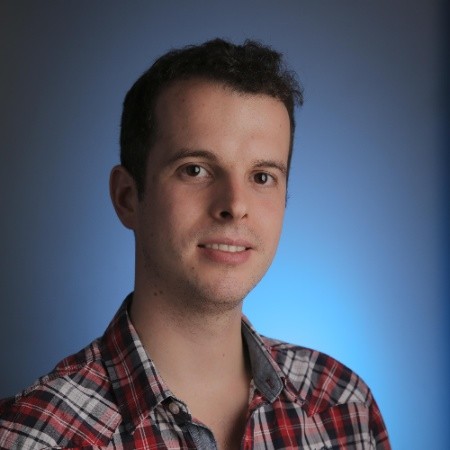
Photo: courtesy of Audren
Other interviews in "People and Robots" series:
- Details
AFAM: Hello Ryan! Thank you for participating in this interview series. We met each other at Agoranov in November 2019. Please tell me a few words about your startup today. How was your 2020 professionally speaking? How are you and your company coping with the COVID-19 outbreak occurred this year?
Ryan: Despite the circumstances, our startup is growing faster than ever. People are looking very seriously to robotics as a productivity necessity in the post-COVID world of manufacturing. Our solutions make industrial robots, easier to use and more cost effective – especially for the uninitiated – and this has brought in new projects faster than we can handle. Right now, our biggest problem is finding new talent to keep up with demand.
AFAM: can you tell us a bit more about your every day job? How is it different from the time when your company was created in January 2018?
Ryan: My role as CEO of Fuzzy Logic Robotics is constantly evolving. At the beginning, I was writing code and soldering circuit boards to get our prototype out the door for a first client. Soon thereafter, I was writing grant proposals and pitching for incubators and accelerators. After that, I was evaluating market opportunities and prospects. Now I am recruiting and preparing our roadmap for the next 3 years. In my mind the key to the role of CEO in a tech startup is to keep learning and adapting.
AFAM: being in robotics today, is it about seizing business opportunities or about changing the world?
Ryan: I believe that some part of you has to want to change the world, even if only by a bit, to create a startup, but vision without solid business acumen will get you nowhere. Your business exists only if you have clients willing to pay for your product or service.
AFAM: you have been living in France since 2012. You obtained a master’s degree from Arts et Metiers and PhD in robotics from Pierre and Marie Curie University. You are also a Georgia Tech alumnus.
Have you ever thought about moving back to the US? What is your opinion on differences/similarities between the two countries as regards professional and business opportunities for roboticists and robotics startups?
Ryan: As of now, opportunity has presented itself in France and I can’t see myself leaving anytime in the near future. Living and working in France is a true pleasure and I really appreciate the work-life balance that French culture encourages. I don’t think it is any better or worse than working in the US – just subtly different.
Robotics is a burgeoning sector of activity in France and there are certainly more and more actors popping up every day but I believe the majority of opportunities are still in the US.
AFAM: robotics is a very broad sector. There are a lot of industries impacted by automation nowadays – transportation, manufacturing, healthcare, services, food (read our interviews in Food for Thought series), to mention a few. Which of the industries are undergoing the biggest transformations today according to you and where to look for major opportunities?
Ryan: From what I can tell, the manufacturing and logistics industries will be the most impacted by robotics in the near future. They are historical automation powerhouses, but with the shift from mass-production to mass-customization, robotics has become a critical element in ensuring a competitive advantage and the strongest players are doubling down on their automation investments.
AFAM: we have a lot of students every year looking for internships and later on, job opportunities in robotics (including on the US market). What advice would you give to these students? What skills and knowledge are crucial to acquire to be successful searching for an internship in robotics?
Ryan: Robotics is a field which combines an array of technologies and therefore requires a diverse skillset. Any robotics engineer should have a good understanding of mechanics, dynamics, electronics, and programming. I think programming skills are the most important of the list, but being a good programmer is not enough – you have to have a good handle on the underlying math of robotics to solve the hard problems.
AFAM: Thank you, Ryan, for sharing!
For more information about Fuzzy Logic Robotics:
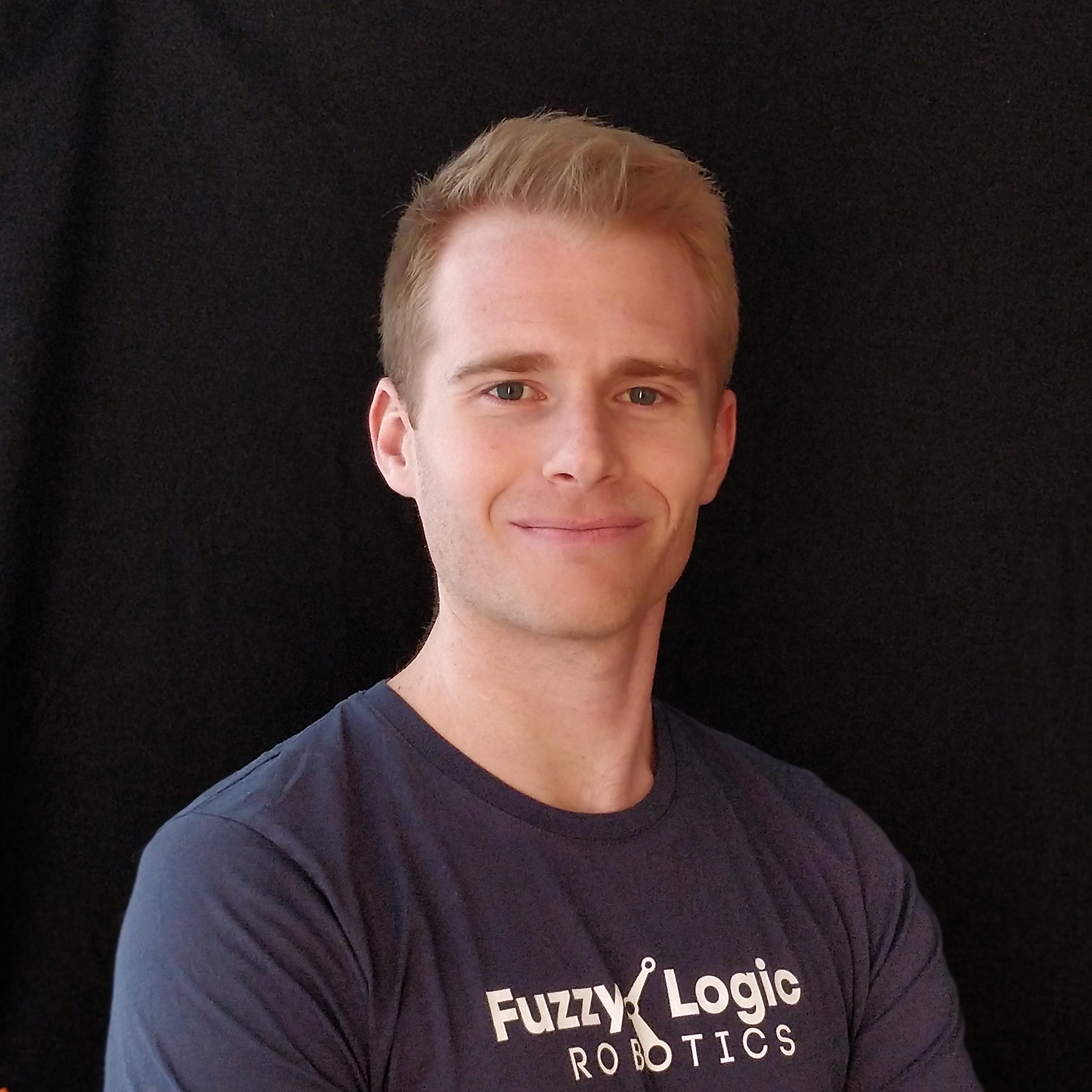
Photo: courtesy of Ryan Lober
Other interviews in "People and Robots" series:
- Details
My name is Adrien Monvoisin (Sorka, CL204). I have completed my master in Engineering at UC Berkeley in 2008 and immediately joined Deloitte Consulting as an Analyst. Fast forward 12 years, I am still at Deloitte, as a senior manager in the Strategy & Analytics offering.
AFAM: Please tell us more about what your consulting role is about?
Adrien: I focus on serving clients in the financial services industry (banking and capital markets), leading the design and implementation of large and complex risk, finance and banking transformation programs. I have always had a passion for banking, finance and technology, and I have been fortunate to grow my expertise in the intersection of those three areas. My role is mainly two fold: focus on delivering sold engagements (and make the clients happy), as well as find new opportunities (i.e. sell new projects). I need to strike the right balance between meeting the clients’ needs, meeting the Deloitte partners’ expectations, and fully relying on the team members doing the hands-on work (providing the right level of guidance and risk management, without micro-managing them).
AFAM: How did you get where you are now?
Adrien: To be perfectly honest, I did not really know what to do after my master, and consulting was sold to me as a job where one can “touch” many areas across industries and technologies. Consulting is often described as the best place to start a career, by having to experience a variety of projects, clients and roles, and I genuinely believe this is true. I have been able to find great mentors and have organically grown within Deloitte. It is a fast-paced environment where one needs to quickly adapt to different situations and push his/her limits. It is a “work hard play hard” culture that rewards strong performers. Although I have had opportunities to join competitors, past clients or join new ventures, I enjoy Deloitte’s culture and feel fulfilled in my current role.
AFAM: What does your typical day look like?
Adrien: There is the before and after COVID. Before COVID, I would usually work from home on Monday and fly to the client location on Monday evening. Being on the East coast and focusing on financial services, most of my flights are within 2 to 3-hour range. I would stay at the client site through Thursday and work from home on Friday. While traveling at the client’s location, I do not mind spending longer hours at work if that means starting my weekend in the early afternoon on Friday. Most of the days are filled with meetings, mostly by phone, between dealing with clients’ fire drills, team meetings, proposal and firm initiative / eminence activities. After COVID, all those meetings remain on my calendar but they are all virtual. Although less time is spent traveling, I feel I have been working more than ever. What used to be a hallway conversation became a 15mn meeting. We do try to use video for most meetings, to make it more engaging and more connected.
AFAM: What do you like in your consulting role?
Adrien: There are a lot of opportunities to learn, whether it is around new technologies, tools or processes, either via training sessions or project experiences. I like the variety of the roles and projects (and associate problem statements), and the fact that we are solving real and meaningful business problems with designing and implementing tangible solutions. I also enjoy working with smart individuals that I can trust and rely on. Another perk of consulting is the travel component (which can get tiring eventually) where one gets to stay in nice hotels, go to fancy restaurants and have the ability to redeem millions of miles for family vacations.
AFAM: What are the challenges of the consulting job?
Adrien: The travel. It is fun when young and single, but it quickly feels old to be on the road 3 to 4 days a week. It gets tricky once the family expends and it is critical to reach the right balance between personal and work life, and make a point to be home when it is needed. Another challenge is the unpredictability of the amount of work: it happens to be looped in at the last minute in intense proposal work that can last a week, and sometimes spans over the weekend. Reaching a healthy work-life balance is critical, and that goes by setting boundaries between work and private life, and learning to say “no” at times.
AFAM: What skills and qualities do engineers need to be successful consultants?
Adrien: Some of the must-have skills are: being a quick learner (connect the dots with minimal input), being curious, being social, reading cues, and having strong written or oral communications skills. Those are foundational skills to have, everything else can be learned on the fly. At the analyst level, the interviewers are not judging the experience or content expertise of the interviewee, but rather evaluate how that candidate would perform if put in front of a client. Time management is also a critical skill to have to be able to juggle multiple priorities, as well as being able to navigate through ambiguity: directions are sometimes not clear and one needs to take initiative to move forward, even if that means pivoting the approach later on.
AFAM: What advice would you give to a student who wants to work in consulting? Start as a junior in a large management consulting company, find an internship in a boutique shop, become an expert in a certain field before breaking into consulting……?
Adrien: I would give the following advices:
- Connect with individuals that are currently in the field: it is important to learn from them, understand the company’s culture (each company has its own culture, and may not be a good fit for everyone). Be prepared before engaging with those individuals: time is valuable so do your homework and pre-research as opposed to coming empty-handed.
- Understand what type of consulting to get in: strategy consulting is very different from technology consulting. Each consulting firm has different expertise, culture and approach. Again, knowing what one likes and performing research is essential to ensure it is a successful match.
- When applying for a job, have a story: do not list a bunch of skills and achievement, make sure there is a logical flow and that the job one is applying for is a logical next step in one’s career
- Show leadership activities. I am always surprised by how many leadership activities and internship American students applying for analyst positions have on their resume: it is important to be proactive and have a story to tell and facts that back them up (Americans like to stretch the truth, but never lie!)
- Make sure this is a job fit for your personality: juggling multiple projects and being on the road every week is not for everyone, and can make you miserable if you do not enjoy it.
Consulting is a great way to quickly discover a variety of roles and activities and jump start a career by opening doors for new opportunities. Feel free to contact me if you have any questions or just would like to chat on a consulting or banking-related topic.
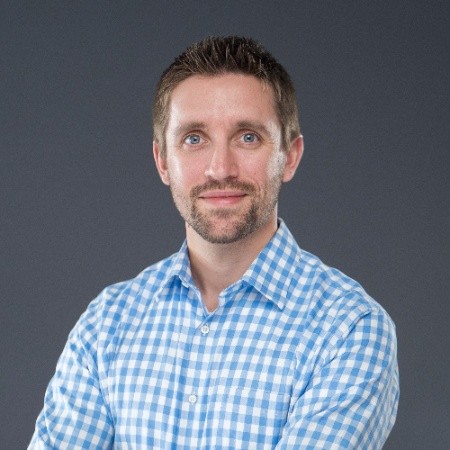
Other interviews in our "Why Consulting?" series
Interview with Cyprien Bastide (Bo 214), OM Partners
Interview with Claude Leglise (An 74), SVA Innovation
Interview with Maxime Crépin (Bo 210), Bain and Company
Interview with François Théry (Li 96), Accenture
- Details
Thomas Gurriet (Cl 212), robotics engineer at Yamaha Motor Corporation, is our first interviewee for the new "People and Robots" series. Enjoy the reading!
AFAM: Thomas, first of all, congratulations! Since February, you have started working as a robotics engineer for Yamaha Motor Corporation in the state of Georgia. It coincided with the start of COVID-19 outbreak. How were your first months at Yamaha Motor?
Thomas: Thank you! Yes, I’ve been pretty lucky in that regard as I started there only 2 weeks before the confinement and hiring freeze. So far things are going great, plenty of work to do and things to develop which is exiting.
AFAM: can you tell us a bit more about your job? We assume, you were among several candidates for this position and the interview process was difficult. Why do you think you were the most successful candidate? How does being a gadz’art help you?
Thomas: I cannot give too many details as you can imagine but essentially I joined a brand new R&D division at Yamaha Motor US with the goal of developing Smart Boat features and products. We are still a very new and small team so we each have to take on multiple parts of the project at the same time, which makes the job super challenging and interesting. To be honest, there was no competition for the job. Yamaha is not really on people’s radar when it comes to tech companies, and Kennesaw Georgia is no silicon valley. I learned about the job from a good friend of mine I worked with while finishing my master at GeorgiaTech. He was looking for a robotics job near Atlanta right when Yamaha started hiring their first engineers for the project. He got the job and so we kept in touch until I finished my PhD and decided to join the team. If it wasn’t for the Gadz’art curriculum which emphasized the importance of developing a professional network I would certainly not be here now.
AFAM: Being in robotics today, is it just about seizing business opportunities or about changing the world?
Thomas: For me it’s about meeting great people, continuing to learn and develop knowledge and skills, so that hopefully one day we can make a difference. Though getting to a position where one can decisively impact the world for the better requires some form of financial success and prosperity so it’s definitely a bit of both.
AFAM: robotics is a very broad sector. There are a lot of industries impacted by automation nowadays – transportation, manufacturing, healthcare, services, food (read our interviews in Food for Thought series), to mention a few. Which of the industries are undergoing the biggest transformations today according to you and where to look for major opportunities? What robotics companies/startups were impressive for you in the past year – 2 years? Could you give us TOP 5 US robotics startups to follow?
Thomas: I think you laid out the major ones. I could add the entertainment/film industry where we are seeing an increasing use of drones and robotic manipulators for camera operation. In terms of opportunities I think preventive health care is the big one both in terms of business and positive impact on society. In terms of startups, in think Neuralink is THE company to follow in the years to come as what they are developing can really be a game changer for humanity. They are supposed to start human trials within a year so it will be interesting to see what they can achieve.
AFAM: we have a lot of students every year looking for internship and later on, job opportunities in robotics (including on the US market). What advice would you give to these students? What skills and knowledge are crucial to acquire to be successful searching for an internship in robotics?
Thomas: I think the most important is to develop your network as early as possible and get involved with people in your field of interest. Robotics labs in universities is where a lot of roboticists start their career and I would encourage someone who’s interested in robotics to join such a lab for a master or a PhD. It’s a one of a kind opportunity to meet smart people and find career/business opportunities while having time to learn and broaden your skillset. Getting into a good robotics lab can be just as challenging as getting a job in a top tech company because of the ridiculous ratio between spots and applications. What I recommend is directly go the lab’s grad students and help with their research. From my experience, the lab’s students weigh in the selection process much more than one might expect. A lot of prospective undergrads will try to get involved with the lab, but in my experience most will end-up not doing anything by lack of interest or because they are too focused on classes, so there is a real opportunity for truly motivated people that are ready to put in the hours to get noticed and secure a position in the lab. When it comes to knowledge and skills, I think it’s important to broaden them as much as possible while still focusing on one specific area of expertise. Robotics is the intersection of a lot of fields, and understanding these connections and interplay is fundamental when designing and building complex systems. In terms of skills, I consider programming to be a must so as to be able to develop the tools you need to solve problems you encounter. Having solid math and physics foundations is also important when it comes to designing the algorithms to control the robots. Finally, I think that having an up to date knowledge of the technics, tools and software than can be leveraged to solve engineering problems in your area of interest is also fundamental, and can make a big difference in terms of who can solve a problem and who cannot.
AFAM: Thank you, Thomas, for replying to our questions. Good luck with you new job and let's keep in touch!
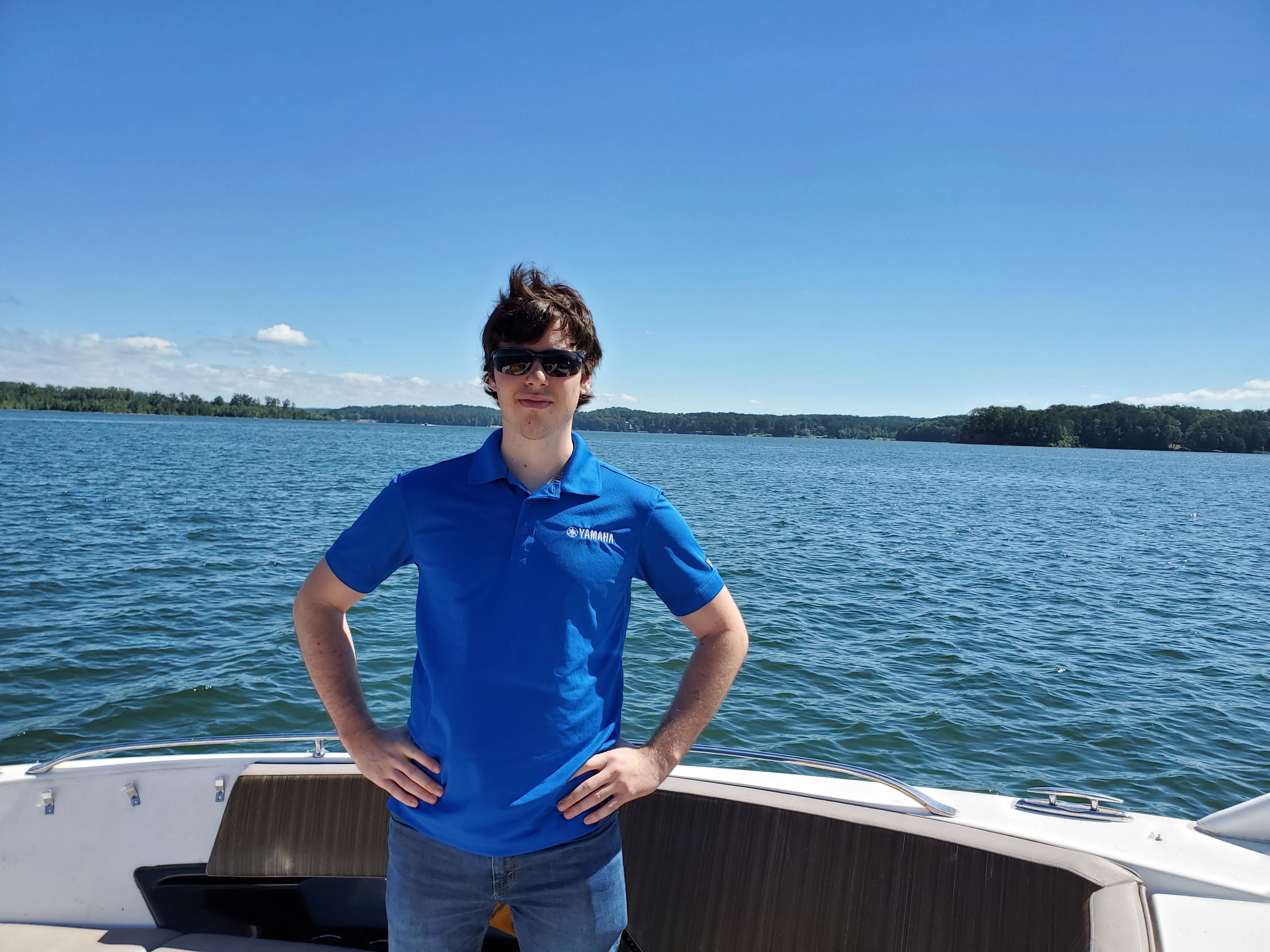
Thomas on the test boat on Allatoona lake (Photo: courtesy of Thomas Gurriet)
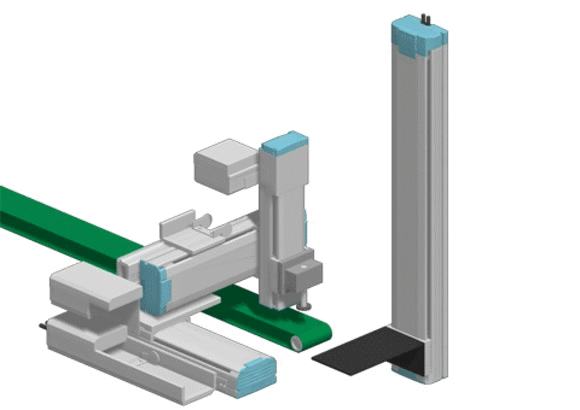
Controlling Cartesian robot and single-axis robot with a single controller (picture credit: www.global.yamaha-motor.com)
More about robotics:
https://www.roboticsbusinessreview.com
http://www.yamaha-motor-georgia.com
Other interviews in "People and Robots" series:
- New AFAM Team has been elected!
- What next for American Friends of Arts et Metiers? - note from a candidate for AFAM CEO position Xavier Wartelle (Li 82)
- Why consulting?... replies Cyprien Bastide (Bo 214), consultant at OM Partners, for our interview series
- Aper’s Gadz Virtuel - online across the US, March 31st
- AFAM elections 2020! Vote, participate and become a board member!

 BLOG /
BLOG /  CALENDAR /
CALENDAR /  DONATIONS /
DONATIONS /  MENTORS /
MENTORS /